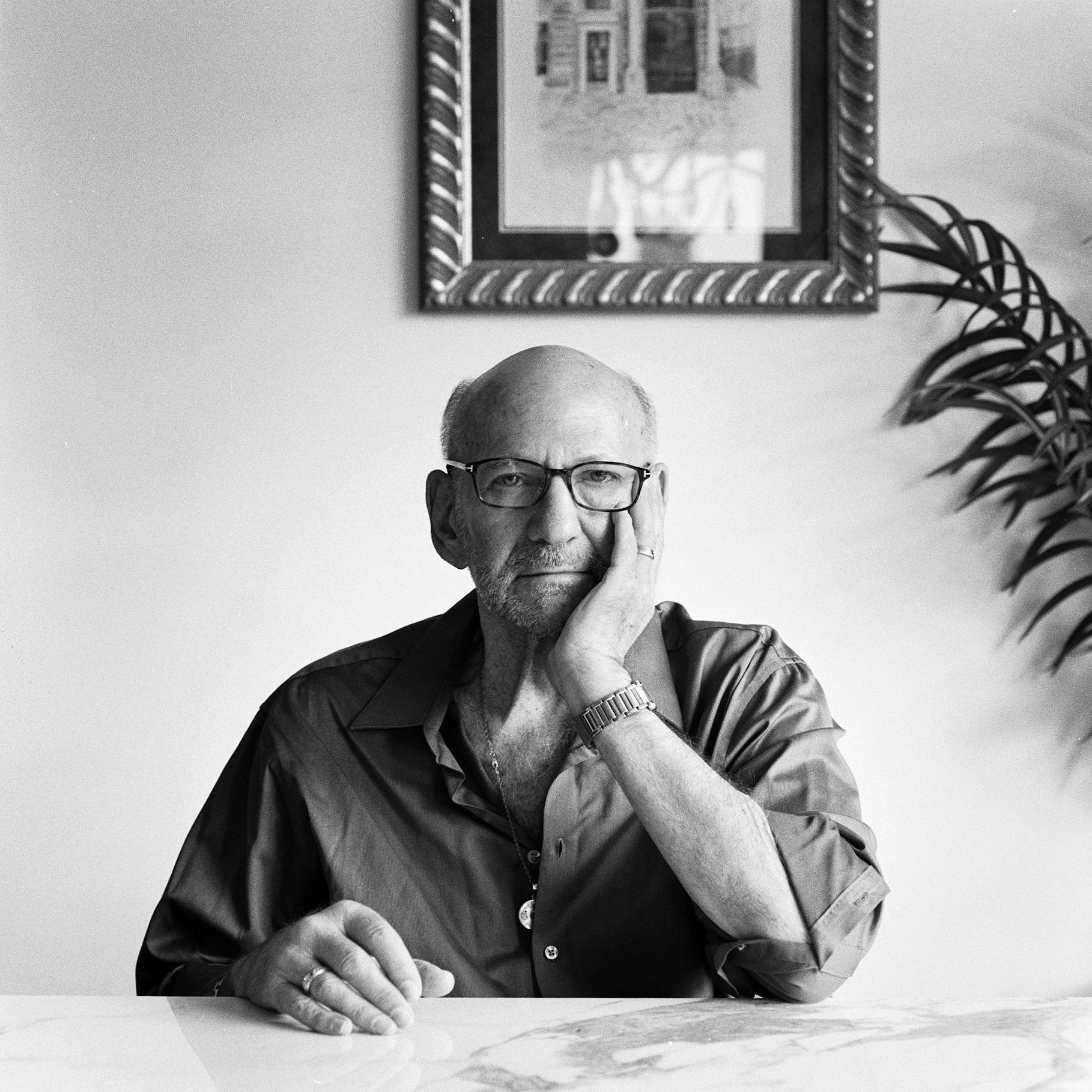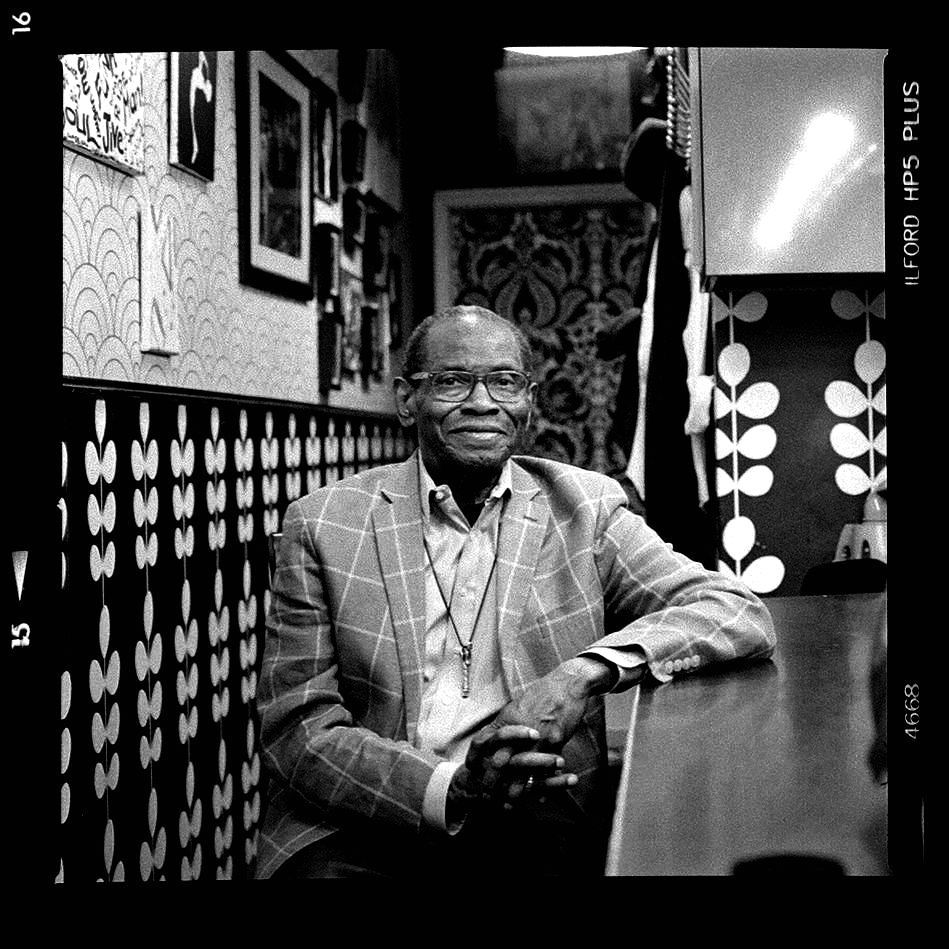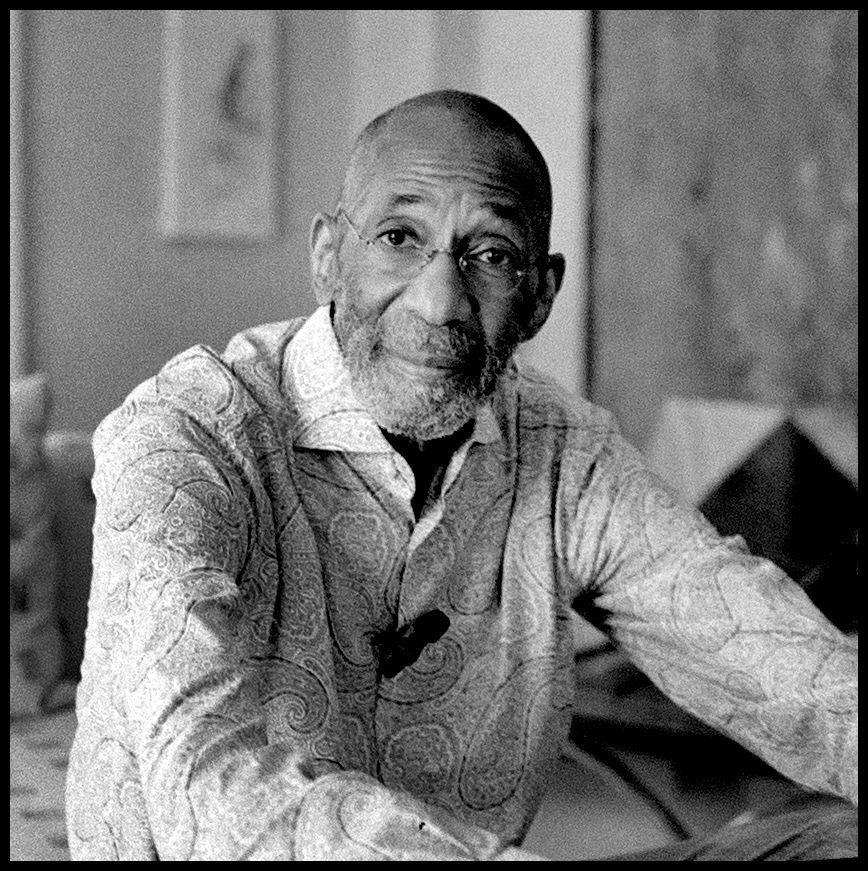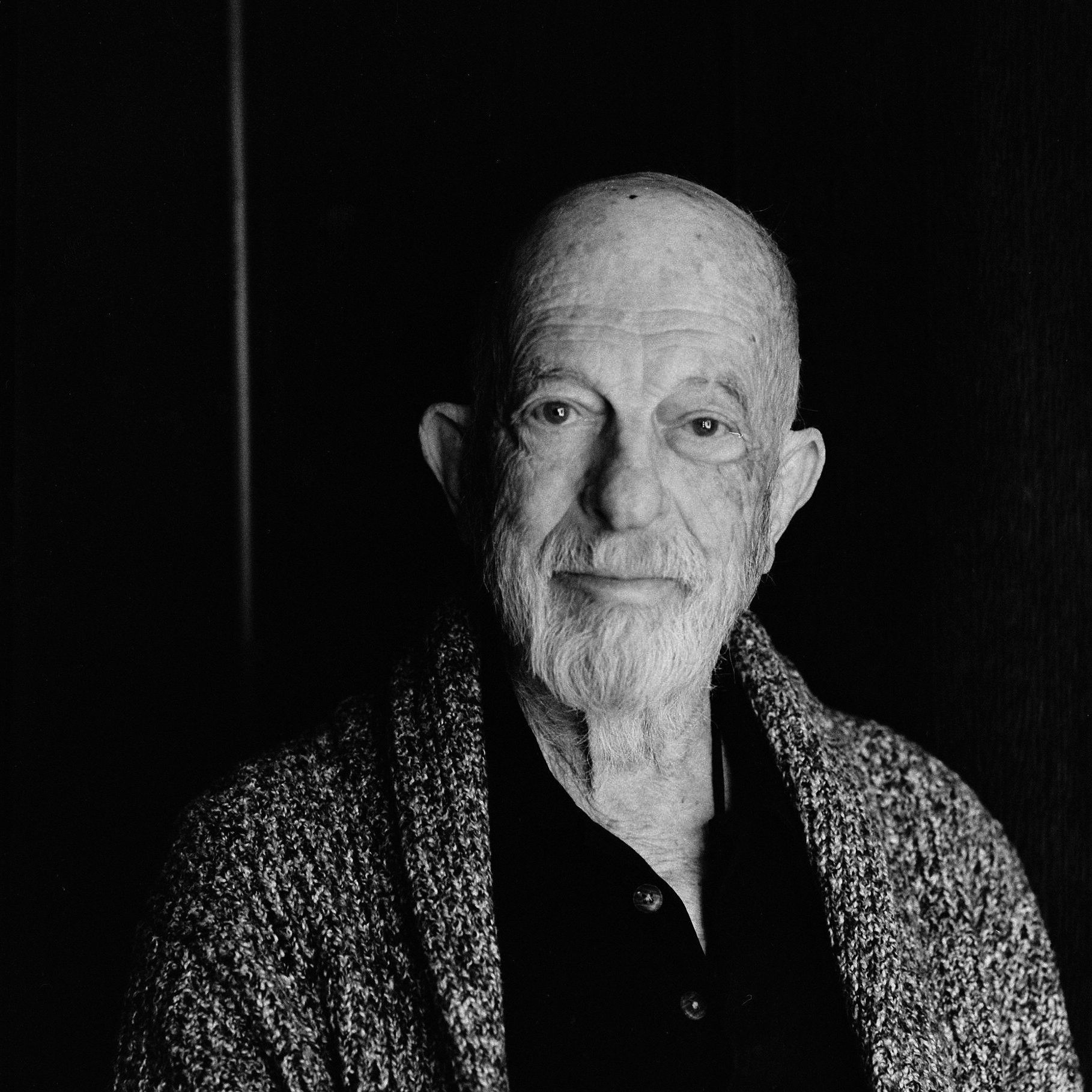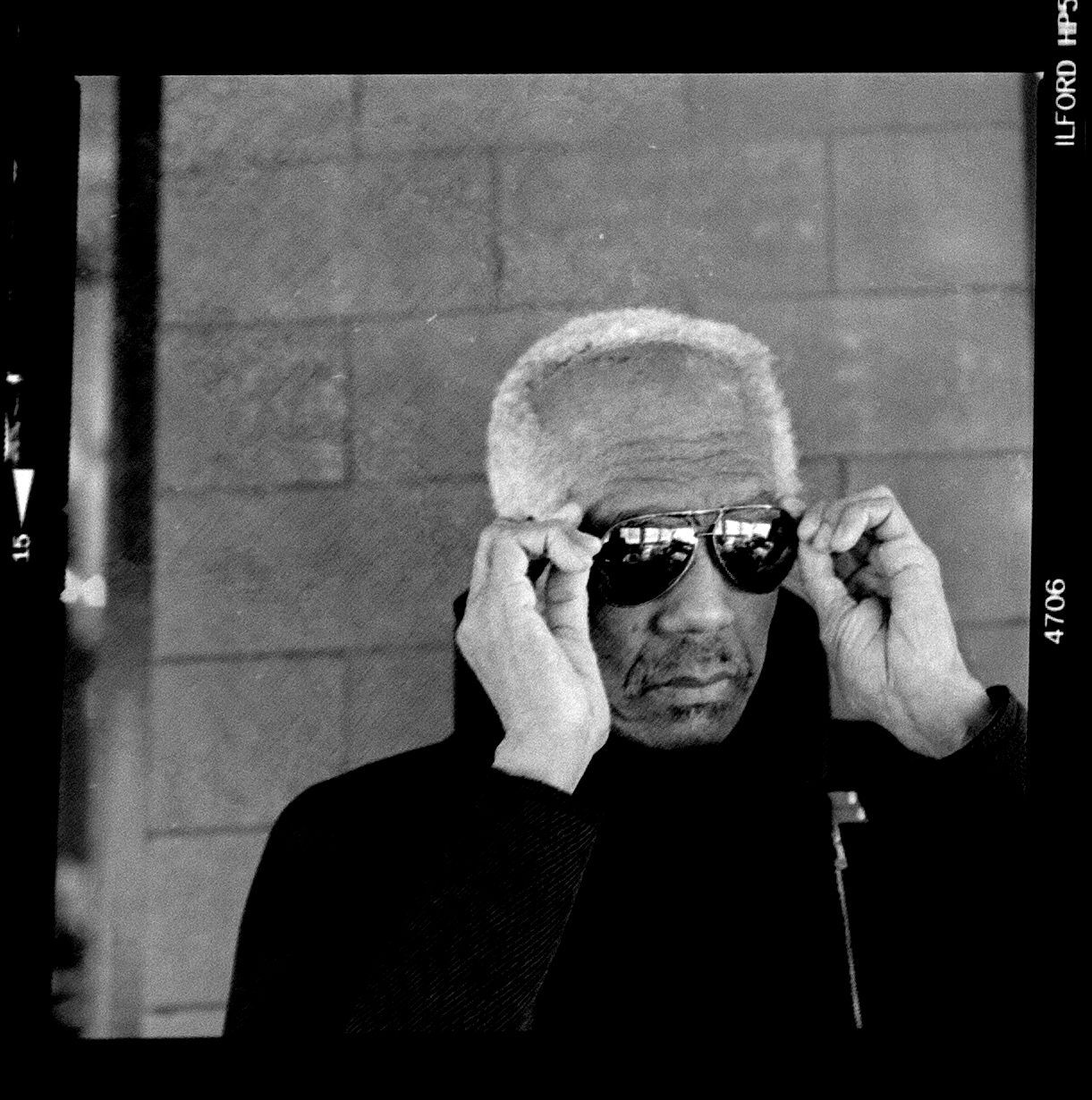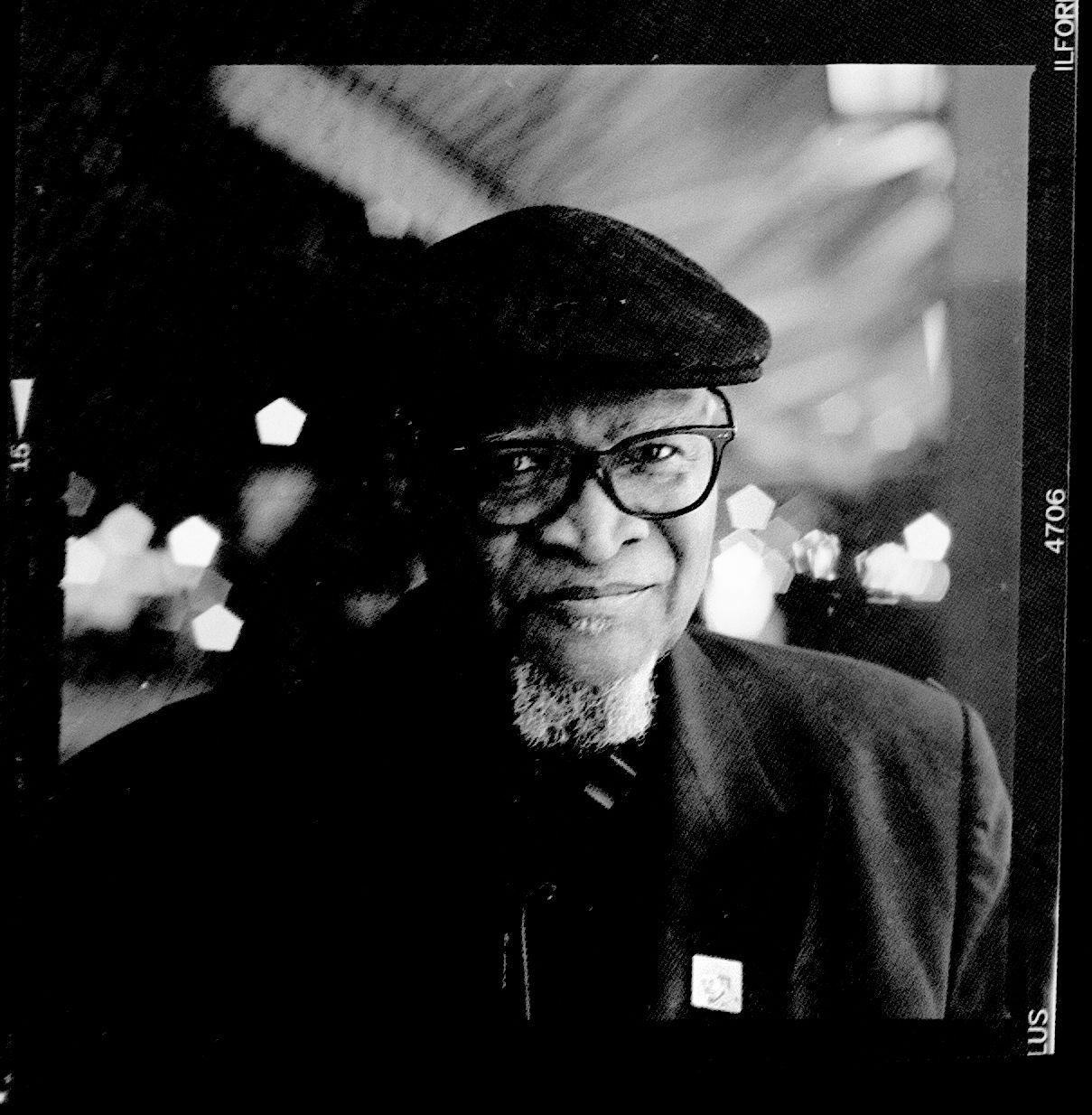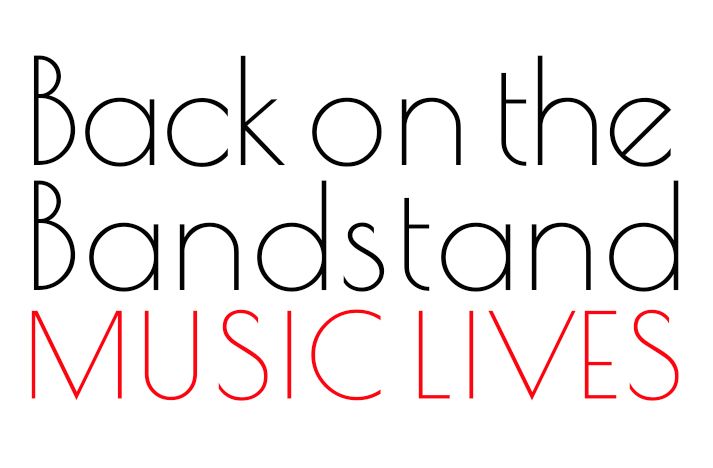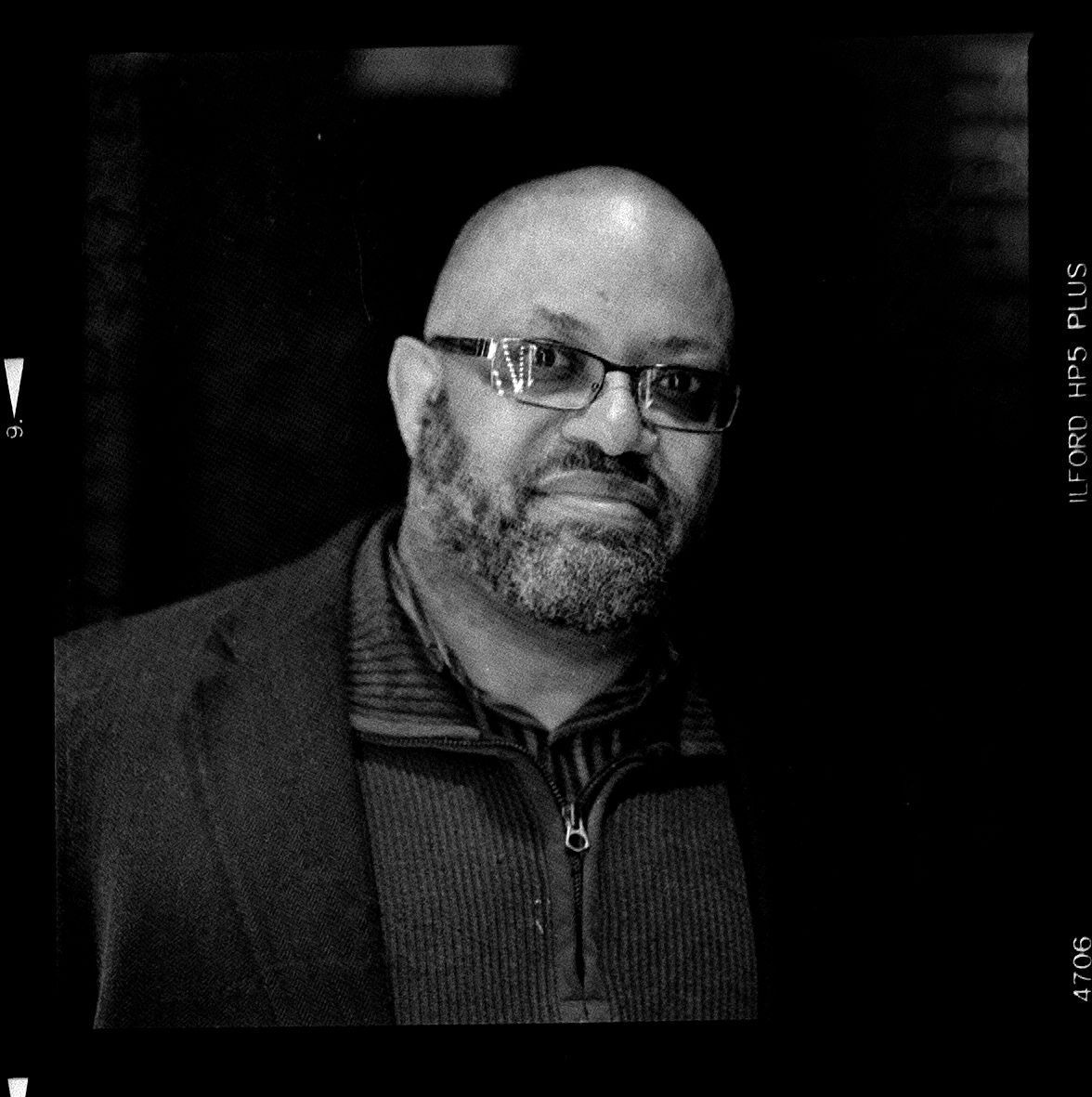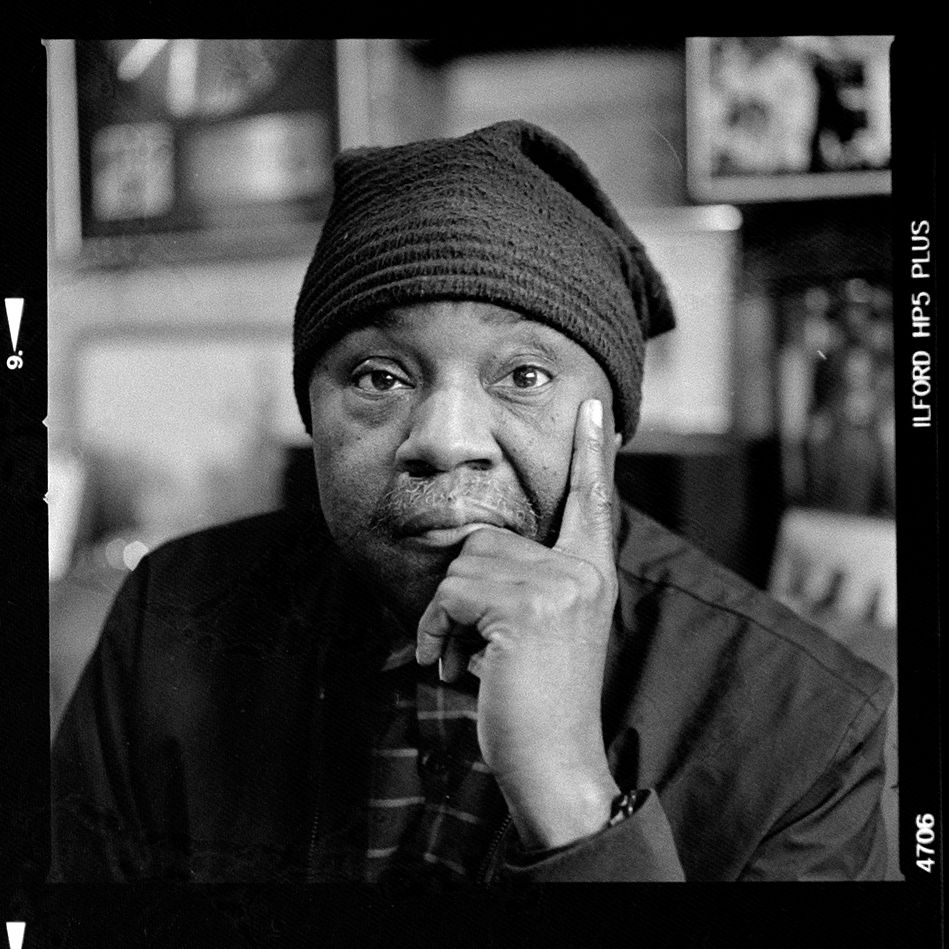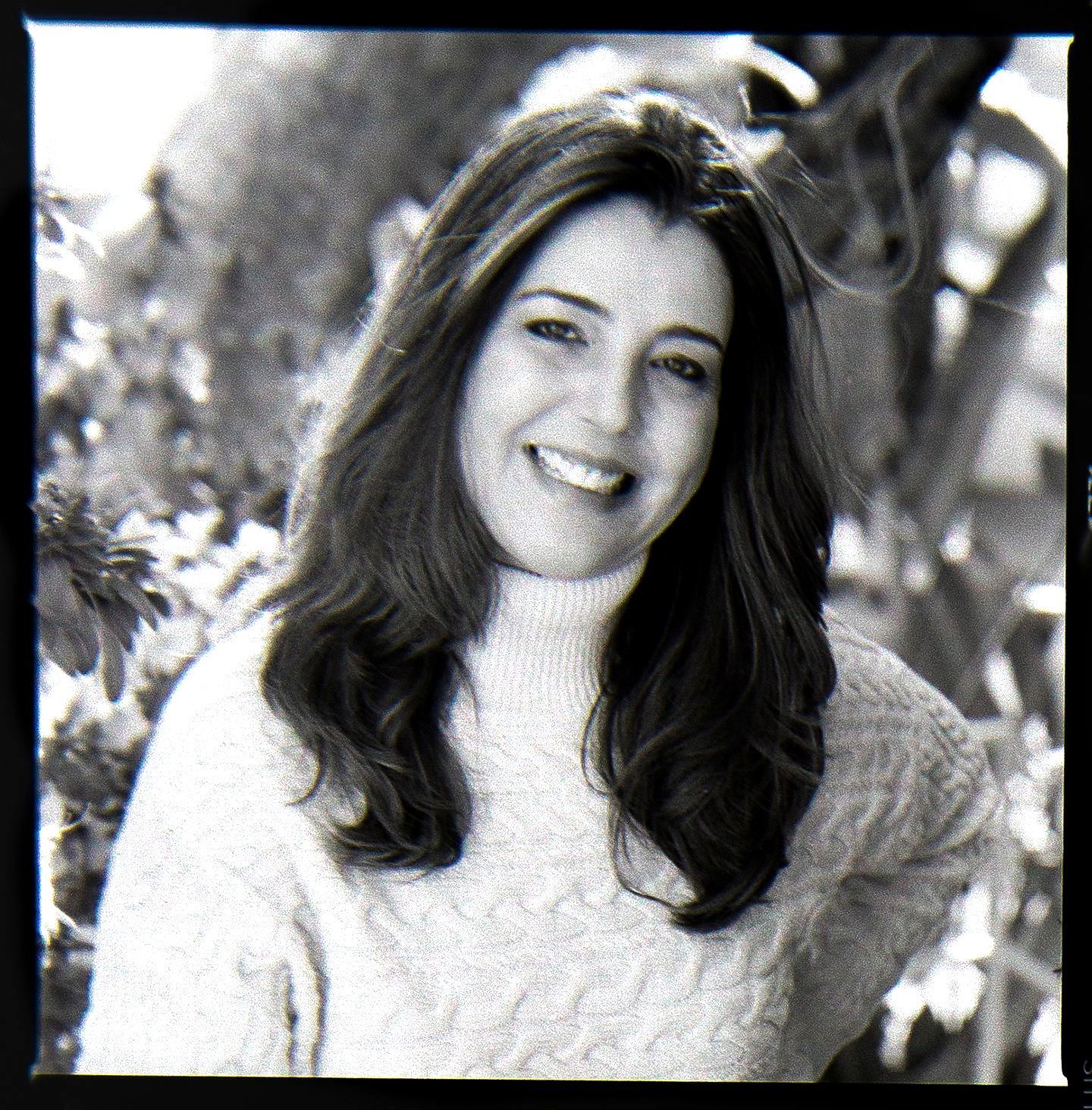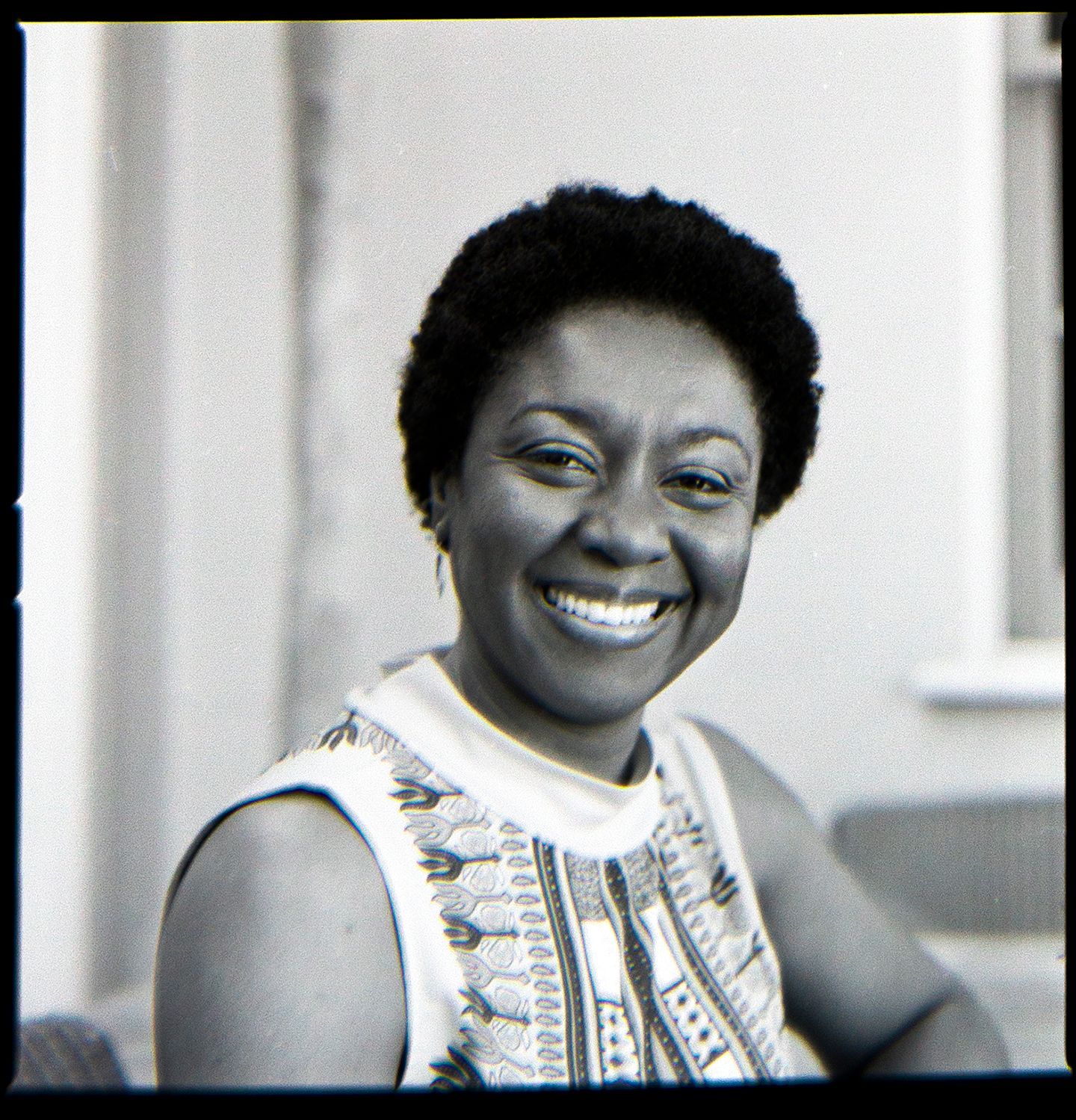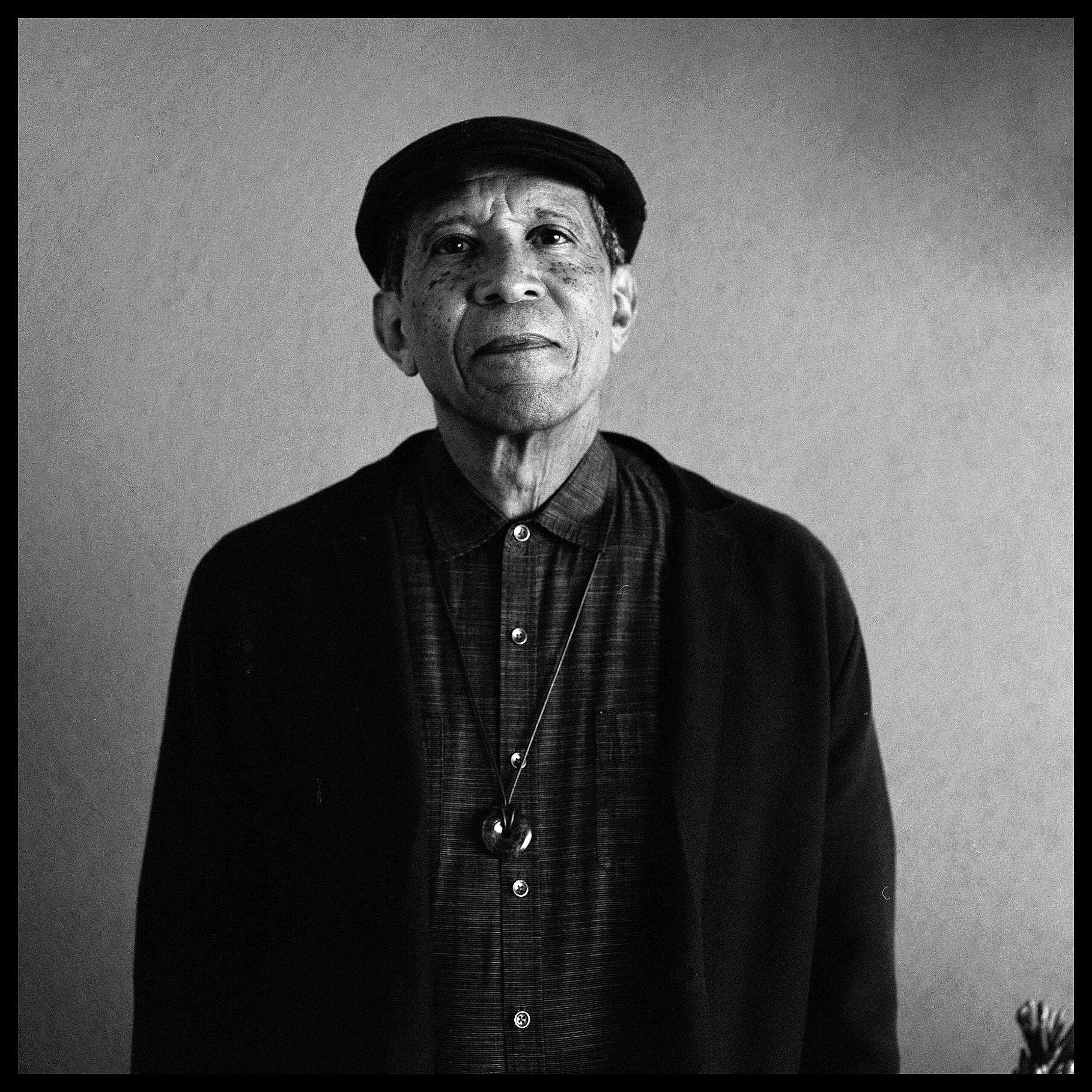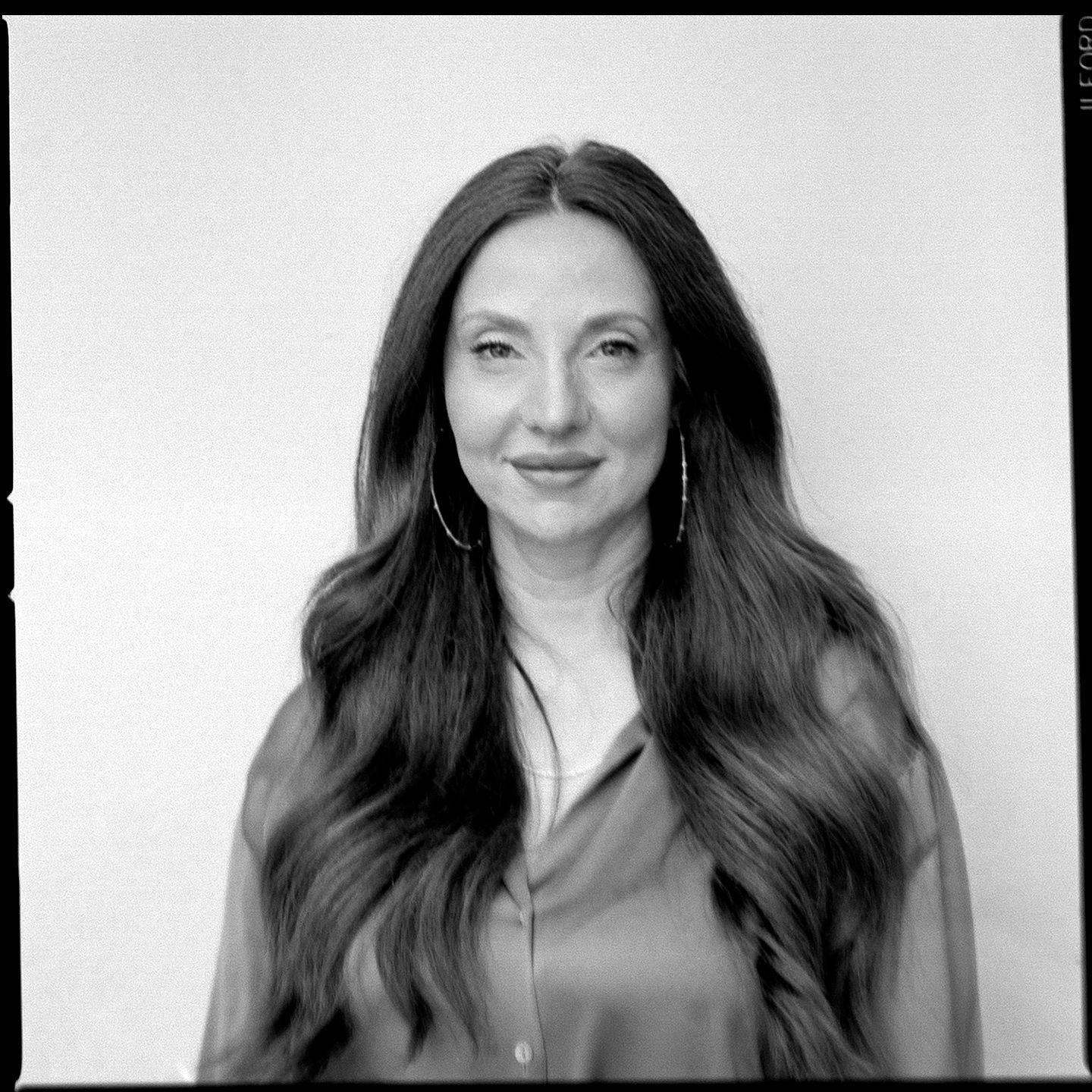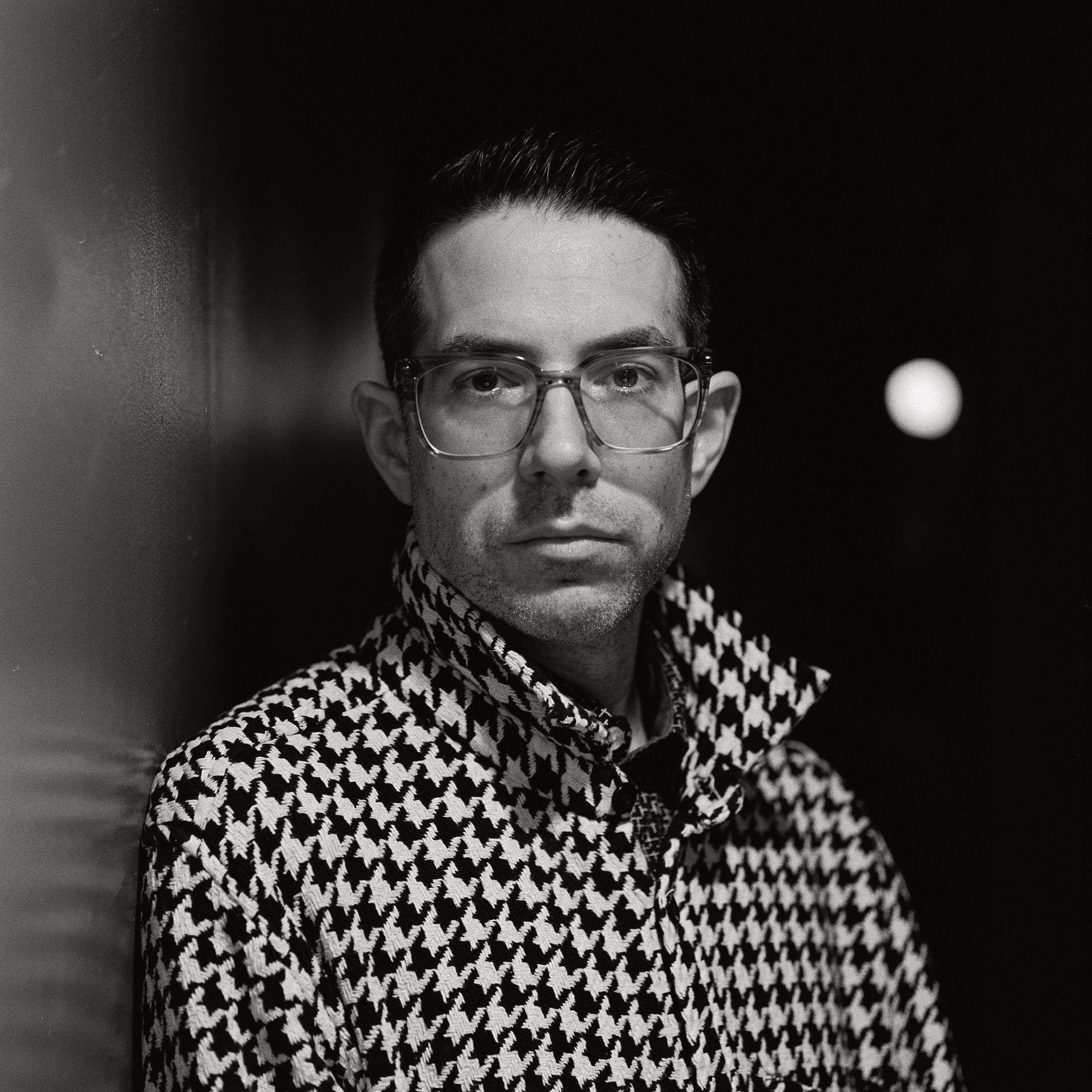Back on Stage
Back On Stage:
how musicians are responding to the return to live playing.
The project
This portrait photography project will document the reflections, evaluations and experiences of musicians and performers during the time when they were unable to play live during the COVID-19 pandemic restriction and and reflect on how it feels to be back on stage in front of a live audience.
The project is a collaboration between photographer William Ellis, Visiting Research Fellow in Photographing Popular Music Culture and Professor of Popular Music Studies, Tim Wall.
San Fransisco Jazz Collective: Birdland, New York City, 24 March 2023
“Back on Stage”
documents and celebrates the resilience and dedication of musicians and performers, to capture the excitement and value of all forms of live performance in the culture. It also allows musicians, and other live music workers, to reflect on what have been unprecedented circumstances for professional musicians within living memory. The project also explores the medium of portrait photography using older, non-digital photographic capture and print technologies, as well as its relation to the spoken word.
These images will be largely analogue based, shot on black & white film, processed and silver gelatin prints made in the darkroom. The photographs are taken on location, most usually at venues and reflect the energy of performers and atmosphere of the environment. The photographs are presented in a series, having the feel of a photo essay, combining portraits with concert performance photographs. The project will capture the stories of a diverse range of performers, ranging from well-known stars to local, independent talent, as they discuss the impact that the pandemic has had on their craft and their lives. The project also uses audio interviews with the participants, who share their thoughts on their experiences and reflections during lockdown now they have returned to the stage. These interviews will be transcribed and included alongside the portraits. The photographs and interviews in combination provide an insight into the emotions and challenges of being a musician or performer and those working in the arts in ancillary roles.
This is the ideal time to approach performing musicians on this very personal and yet universally impactful circumstance. Sometime has now passed since lockdown, and the isolation and frustration of those months for performing musicians are largely behind them, these photographic sessions capture both the more positive situation they now work in and their recollections, thoughts and feelings on not being able to play live.
The project outcomes will be disseminated in a number of outputs. These include gallery exhibitions, a website exhibition, an academic publication on Research Catalogue, and potentially a book.
Project
Launch:
7 days, 7 nights
New York City
17 - 24 March 2023
Arturo O'Farrill Bill Crow
Billy Harper. Bobby Watson
Dave Liebman Eddie Henderson
Fred Hersch George Cables
Joe Lovano John Lee
Justin Robinson Lenny White.
Mark Guiliana. Morana Mesic
Ron Carter Roberta Gambarini
Sheila Jordan
Back on Stage sessions take place on location.
In artist's homes, art galleries, beaches, cafés, conservatoires, hotels, museums, pubs, restaurants, recording and broadcast studios, record stores, at soundchecks, onstage, between sets, in green rooms, universities and at some of the world's leading jazz clubs - including Birdland, Blue Note and the Village Vanguard in New York, Catalina in Los Angeles and Ronnie Scott's of London.
Add a title here
Subtitle
Arturo O'Farrill Bill Crow
Billy Harper. Bobby Watson
Dave Liebman Eddie Henderson
Fred Hersch George Cables
Joe Lovano John Lee
Justin Robinson Lenny White.
Mark Guiliana. Morana Mesic
Ron Carter Roberta Gambarini
Sheila Jordan
Add a title here
Subtitle
Tardo Hammer. Greg Osby Laurie Dapice Frank Lacy Guimo Victor Jones. Caelan Calledo Rufus Reid Uri Caine Camarhn Alforque Gianni Valenti Jochen Rueckert John Beasley Steve Rawlins Bob Barry. Ruth Price. Richard Bona Greg Carroll Tamir Hendelson. Del Atkins. Troy Dexter. Yuko Mabuchi Munyungu Jackson Paul Buck. Greg Porée
Add a title here
Subtitle
D a v e L i e b m a n
Musician
At home, New York City, 22 March 2023
W. "Well it's lovely to see you again and thank you so much for welcoming me to your home to participate in this project I wonder if you could give me an insight please into what you felt during the restrictions of Covid when you couldn't play live and just what went through your mind and what did you do perhaps. Any aspect you'd like to talk about."
D "Well I'll be honest with you I took advantage of the time to rest. I've been extremely busy you know I'm always busy. Well I'm not going to say I was burned out but I felt the need to cool out. So a lot of that time was spent watching some television and to a certain degree reading but it's funny because in the last few weeks I’ve had students who were involved in projects during that time and it was heartening actually you know they were the young folks and and they continued to put persevere as young ones do and so watching then and seeing retrospectively now because it's been long enough to have a past history this Covid 19 again it was really interesting to hear the projects. There was so money available for clubs to stay open, there was some compensation going on to help, so it wasn't just like we're on our own you know. But for me, we just moved here two years ago, so there was a lot on the plate that really I needed to listen to and everything and gather together my feelings about it but outside of the fear of your health going crazy it was like a sabbatical and of course the thing about money (? How. Can you survive when you don’t have an income ?) there was a lot of aspects that were involved and just well we couldn't do anything but hands up a lot of it was very positive .. except for the dying ..outside of that there was very positive atmosphere not during but during it everybody was like hangdog …. how are we ..you know
But in retrospect now it comes up to be a little more positive than it really was maybe I don't know we could conjecture about that all day you know. So R and R rest and recreation was my mantra."
W "Just to carry on with that theme did you feel as if taking that time for R and R.. Did you consider or compose new pieces or did you just enjoy the relief, release of ..
D **Little of both, a little of both I did a certain amount of writing at the beginning,…… living in Manhattan ..we came from Pennsylvania f??fiveteen ..thirtyfive years ?? To living in Manhattan finding some paperwork it's going to be challenging but outside of that initial response at the beginning I was pretty much not on the same page.. what can I say.. I felt that I needed to rest and be nicer to myself because normally I wouldn't take a rest, I've never taken a rest you know but this( ??????) And of course in my own situation I've been doing this for 60 years young guys look at you and say what are you doing, you know, so there's some responsibility for how you handle the prison aspects you know that your caught and you can't go anywhere I mean you couldn't wipe the counter with a sponge I remember when you bought groceries it would take hours to put it on the table because you had to brush everything up etc etc. They had a plague in 1919 somehow the world went on."
W. "So as you emerged from the restrictions and were able to perform live again is that something that you began to do or were you pursuing other things."
D "Yeah .. I mean have a lot of people who I am in contact with, you know, musicians and gigs were like ..you made up for the lost time (????? ) now we could do it. So there was a feeling of sort of jubilation of how we could really get into this not that it's over but it's abated and I'm ready to burn I'm ready to make my contacts, new contacts and old contacts and that slowly happened over the past two years for everybody. Is New York back.. not quite.. but in some ways yes really it is the centre of jazz it has been since the 40s you know I mean. So from when you go down from below 14th Street to Canal Street and count the clubs you have dozens. I also had to make a living .. I mean that was the other thing you know you couldn't just go float around for six months you know. First month or two okay injury time count your blessings and your hopes and your disappointments but you know by the fourth or six month you know you’ve got to get on the case because you can't live on air and everybody's got responsibility I mean (?there is some series small past Masters but they’re recorded) and I did that and it was good and it paid very well. So actually I’ve been recording more than I ever did with overdubs and things like that ..that’s all since the pandemic."
W "Have they been studio located recording sessions or remote Dave.?"
D "I have a young lady five minutes from here who can do the overdubs stuff where I come in I have to play 28 bars or something like that. I can do that you know (laughs) and she's down the street .she’s on 89th Street we're on 77th Street so you know."
W. "So does she come to you Dave?"
D "No .. no she has her equipment. Its just a little room and she's even cutting back on it again because you know live you have to contend with different things but if you go into the studio it’s kind of we do no harm."
W. And when you got back on stage literally, and I can understand a massive contrast between, I'm not sure to what extent you did any social media involvement or streaming did you get involved in that side at all Dave?
D "Well my daughter is big on PR she is very.. Getting to be quiet well-known in PR jazz PR so I count on her of course and my wife (????)changes every day it seems. It's not that I find anything wrong with the social media is just that I don't have time for it. If I was 25 years old I’d be right on it like I was when I was 25 etc so everything in its time you know,"
W "And when you would got back performing live with other musicians what kind of reaction did you have to that any thoughts that you may have had before whether you were concerned are we going to get this together or what we feelings on actually being back there Dave."
D "Well it was positive you know we were coming from ashes and everybody was equal ..a small community like Jazz community ..maybe 100 young people involved you know then established guys like me we were glad to have something to be positive about because the pandemic we were just talking about was quite cruel ..shall we say ..in its way it struck and when you started to see some clubs opening up guys playing more you say yeah man let's go let's go support the music and support these young musicians. So it's been a cycle you know kind of down vibe .. into the middle where people are starting to interact until where we are now which is(? quite a bit happening .. you’ll pick it up I your few days here I’m sure?) You take that hot house magazine and you look in there and it looks like there's nothing but jazz clubs in New York. Manhattan not just Manhattan Brooklyn also and there’s an enthusiasm that’s natural to young people that we try to encourage. I teach here they come in here and I go to the positive side what I can do for them and what they should be doing. Look the glass is half empty .. half full let's do it half full tonight."
W "The kind of composition elements that you were doing during that time is that something you're working on now are you still adding to those pieces Dave or do you feel as if they’re .. Are you going to record them or what’s your.".
ID "I'm not sure I'd love to record them of course.. there's nothing monumental about what I wrote during the pandemic you know just a couple of things I think I could do and stuff like that my work with orchestra, big band everything, that's all things in the past and that would be a body of work that I fix and I start again you know like that but I don't look at composition that way I think composition is a chance to really make choices that have an inevitability about them when they're in the music and your job is to ferret out the useful and the not useful with whoever it is, with younger musicians with your own musicians. I mean I had a band a good band we did three recordings and a pandemic ended that because it was too much to get the guys together and I was a little nervous (??I’m not going to wear a mask I'm a saxophone Player I can't wear a mask ..which was kind of a problem ?) But the positive energy was started to evidence itself already."
W. "Do you sort of get the vibe that more small clubs have opened their doors since to kind of give the young the emerging musicians literally a stage do you feel as if that's the kind?"
D "Yes these places especially in Brooklyn they playing kind of door maybe … pass the hat literally pass the hat but that's what you do. That's what I did with my first Group(???) We did 10,000 miles in the states did a loop (???) Had everything booked we were the young cats that's what you do ..when you get established you bring it back to the bandstand and to the human element is there is any they're not necessarily has to be I mean I know bands were nobody talks to each other but more or less there’s a positive element of communication. Jazz is a great communicative field it's not just the music it's like what we're doing today journalism and art that's why we love covers so much. And I think the community is really, without being formal about it, is really enthusiastic about whoever playing and ‘I’m working Friday night with so and so ..oh yeah tell me a little bit about it .. oh Come on down play a tune you know that camaraderie is something very evident in jazz, can’t talk for rock'n' roll or for classical. I know one thing about Jazz it's about about communication and the music actually is secondary to a human relationship I mean when you talk about another musician you say ‘is he cool’ ..you know what that means.. that means he can play and he's a nice guy .. Then we start to talk about ‘well bar three you know."
W "Thank you Dave."
D "I"'ve never been questioned about the pandemic."
G e o r g e C a b l e s
Musician
Birdland, New York City, 18 March, 2023
W "It's so nice to see you again. George
Thank you so much for participating in the project.
Just to recap, I have set about documenting thoughts and reflections that musicians might have about the time spent when they couldn't perform due to the restrictions and how it feels to be back onstage.
I wonder what thoughts and recollections you might have on those subjects please?
G. "Well I can tell you one thing. Once, we were playing at Smoke, and I think this was during the pandemic and people hadn't heard live music - we hadn't been playing much,
I mean that's what we do and this is our lives, so we haven't been playing much people hadn't heard any music as out there were thinking about how can we do this how can we survive how can we bring this music to people.
So one thing led to another they kind of opened the windows …opened the windows out and had space on the sidewalk where people could eat and sit round tables and hear music.
We were streaming, basically streaming but there was a minimal live audience out there, you know, eating and there were some people walking by ..the owner told me this..that people walking by stopped and started crying, tears started coming down their cheeks because they hadn't heard live music in so long.
So if that affected the audience and people, lay people like that you can imagine for us playing music, it's how we live it's not only our livelyhood but it's what we do it's how we express ourselves our philosophy, we get out there and make ourselves vulnerable we share this music with people.
It’s something that we can play, we can play in a basement, in our homes.. if we are brave enough if we take care of ourselves if we feel safe enough.
Pandemic or no we can play in the basement or play in a studio but it's not the same as when theres an audience there when there are people there.. you have that communication there ..the people are like our musical partners.
So when we play there’s energy going out and we can feel the audiences energy coming back to us so that really makes them our musical partners and so it's a very important thing playing and sharing music, first of all playing with each other with other people being able to do that not just sitting and playing and practising, you know, twiddling our fingers and trying to figure out what we are going to do when we get to play with other people oh what are ideas or maybe be productive that way but it's not the same as playing music for people being out there and having an audience to play for."
W. "George, I wonder when you couldn't get out there when you were unable to you were maybe stuck at home what kind of things did you think about then if you can cast your mind back?"
G. "Well …when are we going to be able to do this again and when are we going to be able to … what’s our income gonna be for one .. in a practical sense and when are we going to be able to share this music and get out there and do what we do because our lives kinda come to a stop, you know, so as I'm thinking about this we were sitting at home I thought maybe we could stream but then we still have to be with each other, we can take precautions.
What was going to my mind was my frustration with those people who didn't want to wear masks or I didn't want to take our ..didnt’ want to participate with shots that you had to take, you know, because in this world we only have each other really, you know, you come to learn that in a real way when you travel on the road when you're with a band, you know, you only have each other out here cause anything could happen and you have to depend upon each other.
But that in the real sense in when we live, you know, people I can see I can understand where people who live in a less dense area than New York or in major cities might feel ‘well I’m not going to see anybody if you stay on the farm’ or but I don't have any sympathy, or I can't relate to, people who say well I don't want to be inoculated but I still want to participate I want to go and do but I don’t want to wear a mask. If you don’t, you know, ‘ I have the right not to be inoculated’.
Ok you can stay home, you know, you don't have to do be so inconsiderate or just selfish as to not care what happens to others just as long as you can do what you want to do.
We live in a world where we want freedom of course but that’s all tempered by our responsibility - every time I hear somebody say 'it's my right to do this ..or..and I have the freedom to do this.'.
I'm saying to myself your rights have to be tempered by your responsibilities.. it’s obvious you don’t yell fire in a crowded ship .a crowded theatre ..it’s really simple to me.
So that's basically what was on my mind.
That and you know like knowing that at some point this would end. That and the things you know first of all how are you going to survive, how are you going to pay your bills deal with You know you have to go into your savings whatever you know.
What's your future going to be like?
I mean, we didn't anticipate all the problems that we run int0 - .that we had run into after the pandemic.
So basically - I'm just thinking about (it): I was just thinking about being home - are we going to be able to travel? … we’re not going to be able to travel if.we can be safe..if get on and do this together maybe we can get this done faster.
But being able to be out there playing music was my goal and our goal I’m sure all of us. That was our goal. But it's still pretty simple."
W Did you feel at that time were you able to focus on other thoughts and projects that you might have in mind or did you feel just a bit at sea as it were?
G "Oh no you are able to focus on that and say ‘ Ok well I got a recording coming you know like what can I do for my next record for my next CD?
I can organise music for that and you do that but after a while you know when it gets longer than you thought and you’ve done that and this thing gets ald ..then there’s frustration that sets in and you’re kind of concerned, you know, there are other people out there, .there are other musicians that may not be as fortunate as you.. that really you know, their next gig is paying for the rent .. you know ..and there’s nothing to fall back on.
But there were people that .. I'm not saying that I can go without work for ever as far as financial considerations go but ..there was that consideration with me too I suppose ‘how long is this gonna go?'
And we were looking at bills coming in and but yes I was able to focus on positive things but then after things started to, you know, kind of linger kept on going ..we still can’t get out what are we going to do now..well maybe we can stream ..we can do that.
But that's not working for every body..that’s not working for everybody. That’s not keeping everybody working but I would say it's just a matter of time , as time went on when it got longer it got a little more nerve wracking it made you a little more nervous and concerned."
W "Well George, thank you."
G. "Thank you!"
R o n C a r t e r
Musician
At home, New York City, 18 March, 2023
W "Ron - thank you so much for participating in this project - it’s so kind of you to welcome me to your home."
R. "Thanks for the invitation."
W. "Absolute pleasure, it's a privilege to have you involved. So Ron what we're looking at is researching how musicians have felt what they've kind of how they dealt with how they cope with time in which they couldn't perform due to the restrictions and then contrast thing that hopefully with the return to stage, the excitement the whole process of performing live even. I'm wondering what kind of thoughts you've had on those matters and if could you share those please?"
R. "Well if you had followed my social media so to speak I did interviews of musicians asking them the same basic questions and if your associate would take a listen to them you'll find that my answers are not quite different because we felt the same missness. We missed the group interaction and we missed the camaraderie we missed being away from home certain hours of the day and we missed coming home late at night. I make every night. I personally missed making decisions I’d make every night about what's the right set or are the tempos ..are they ok.. are they the right keys for the moment..are the solos too long should everybody not (? ). I mean those decisions you make in a heartbeat but for almost 2 years a year and a half they were not a concern of mine and while I liked not having that responsibility that's part of my make-up so I missed a part of that.
W. And during that time Ron I know you became much more involved in social media towards the music itself did you have any changes in their feelings towards what you had done what are you were doing I'm thinking about the future as well .. What was your…
R. "Not really ..I don't always sit down and listen to a records I've made or turn the radio on (because now ????) So I kind of accepted that for the moment that I’d be apart from that environment of course I missed playing gigs but I could always practice in my house it's not the same but I’d be on my instrument during the course of the day anyway. One of the things that I really missed was being home more hours of the day, music is what it is and we all have that in our life”s you know, and when I was working I had time at home too but this time I wasn't worried about cutting it short to get to work or getting in work and not in a very good mood because the gig don't go very well or there were issues at the club ( ?????? that Prob still meant home for me ) New York being home and I didn't miss that but that was part of my life that I didn’t have to deal with for at year and a half and or so."
W. And during that time again Ron I say this because I experienced it and it's something that perhaps you were conscious of not being able to do what you mainly do, I know you've recorded a great deal absolutely, it's a big part of your career but was there any other change any kind of introspective view that you took of your career what you’d done because you had the time to think about things that we don't often get just as an insight into that side of things whether you have any feelings in that regard.
Well I didn’t spend any time looking at what I had done ..I mean I’m just ..I’m not of that mindset I mean some of my students will say that ‘you know this record you’re on’ or check out what key this is in or what are these changes, that kind of review of my career as brought on by the students curiosity rather than my need to hear my progress. The future ..I’ve always been curious as to where it's going to be and will I be a part of it but for the past year and a half I wasn't competing with that because there was nothing to compete with other than the sounds I was still hearing in my ears I was more concerned can I maintain my focus (for what I hear?) even though I can’t perform right now, then when it's time to perform will I still have echoes of those memories going round in my head you know. One of the things I”m always asked Will is about the new generation (??) for a year and a half I didn’t hear anybody basically cos they were like me they weren’t working, or they weren’t publically working, they had gigs I’m sure and rehearsals and stuff like that but they weren’t in a publicly open space that I’m aware of. I don’t know what they’re doing for the past year and a half, probably less than me because they’re just trying to get established in New York and trying to find the right equipment to manage their career, the right agent, the right band, the right arrangements. They had their focus on other things that (I’d have on my own ??????) if I was in the same place, so I don’t know where it’s going now that people come to the clubs again and able to congregate more than parties of two and three we’ll see who shakes out and who’s left over.
W. "And in terms of music that you thought about moving forward through that time, of course you couldn’t perform it but did you feel ,, with that space, with that time, with that head space, did it enable you to have the time to think about future projects.. I know that, of course, you were in touch with people by social media and your friends no doubt but did you find that absolute space something of a benefit ..though it was tragic……
R "A relief.."
W "Yeah."
R. "When the scene is available someone always wants to make a record, that’s their mark on society you know. When you have a tree, the rings in a tree , a record is a ring in their tree of life. And then, at the time before the pandemic, I called it (????? The big inner mission?? ). they were always trying to get another ring in their tree, another CV ,another list on their CV ..well ..and I’m one of the guys who of the many who they could call for that process, that progress for their growth. That itself is a burden in terms of responsibility and being available for those kinds of things. Well for not to have those calls coming in it wasn’t so much a relief as it was a Release??)that no one knocking on my door to help them plan their future physically and musically there were no articles to be read and consumed about where their futures going, you know. I was mostly caught up in .(? my little project I was getting of the ground by me writing some manuals and publishing occasional books about … I have friends of mine who are really good writers ?????????????( & COULDN’T GET PUBLISHED ANYWHERE ??????/ I took a couple of publications in my fledgling company they’re getting some exposure because they’re good writers ( good music) good documentation but I wasn't so concerned with the future I knew it was going to come when it gonna show up and I just hoped that I’d maintain my skill level at whatever it was leftover .. when the time came to perform."
W "And when that point was reached Ron do you recall your first gig was things had opened your feelings about that and being with an audience again is that something that."
R "I told the audience that I’d asked the band..I asked of my band members how we would ( treat?) our first gig, you know, they told me what they thought they would do and they say well Meastro what you gonna do. I said well we’re all gonna embrace and the last one that cries gets (????)
W. "And then you were launched you were away."
R. "Back to the days of old yeah ."
W. And since things have been opened up for travel have you found that you’re touring internationally again to a similar extent.
Has that opened for you as well Ron What’s the feelings on that?"
R "Well I’m not sure about travel the process has changed and the airlines having their own issues, people scrambling around for the new passports and the new TSA stuff. It’s a scramble right now for everybody. I’m not having any great views of looking to standing in line getting tickets, The normal process is now much more complicated in other words and I’m not sure how I’m gonna fare in that new environment so have to audition me first see how I like it."
W. "One thing I’ve always wanted to ask you was.. when you travel internationally do you take your own instrument with you Ron or do you pick one up when you’re there?"
R "We call it Bass Du Jour, The bass of the day.
And sometimes we get very lucky and play on some really good ones and sometimes we get unlucky and find some ones that really shouldn’t be on the stage. Our job William is to give the audience what the promotes paid for and what they’ve come to hear. That presents it’s own set of problems but again if you’re really a scientist and not just a bass player you can file away these things that make a bass work, this bass work, and things that did not make this bass work and relate that to the next bass that you’re gonna run into will also has some kind of problem . While it was a drag really it’s also a learning experience for me."
W. "I wonder, are you working currently on a new recording is there a project coming to fruition the you have in mind?"
R "Well I’ve been asked that question before and I have some ideas rolling around but right now I’m just trying to get my sea legs back and then I’ll have time to consider what project have I not done that i missed not being able to do during the intermission and right now I’m more concerned about will I be in shape to hold up my end of the bargain when the band goes to work.
Not necessarily a project in the next six months or so, haven’t got that far yet.
I have time now man. I had a year and a half rest.
W. " I completely can get that because yeah you’re right things are just moving and for you personally to have that speed, that attack, that expression that you have for your instrument you want to feel its ( with you)
I remember the last time we met at Birdland with your big band- we met after the gig there wasn’t a moment of ..absolute 100% ..and that was a privilege to witness I must say Ron."
R "Thank you I appreciate…
They’re a very good band, all wonderful players - I call them my sixteen piece quartet and they understand what that means, we have a good time and I’m looking forward to getting things set up, and if things go to plan from 2 years ago for October. (2023)
W "That’s the Great Big Band."
R. "And it is!"
W "Absolutely!"
I always check the recording levels before an interview - and do a quick playback back after the interview to make sure all is well.
As I was doing this Ron said -
“Make sure you got something on there man!”
Ron Carter
Bill Crow talks about the famous photograph of him by Dennis Stock which was set up after a call from Bill's friend Nat Hentoff
Bobby Watson: Interviewed at the bar at Smoke between sets.
Fred Hersch
John Lee 2
Justin Robinson
Morana Mesic
Ron Carter
S h e i l a J o r d a n
Musician
“It's 'Raw Power' by Iggy and the Stooges it came out in 1973. I heard about it in 1978 I think when I was about fourteen – fifteen.
A bunch of friends that I used to hang out with who were all guitar players at various levels, were a bit older than me, I used to play around at friends houses and one guy said I should check this out because it reminded him of the way I was playing at the time, so that intrigued me.
This name Raw Power kept coming up again and again.
So I got on the bus and went into town to buy it, which was a big deal because I was only a kid and I didn't really have that much money."
Back On Stage:
how musicians are responding to the return to live playing.
The project
This portrait photography project will document the reflections, evaluations and experiences of musicians and performers during the time when they were unable to play live during the COVID-19 pandemic restriction and and reflect on how it feels to be back on stage in front of a live audience.
The project is a collaboration between photographer William Ellis, Visiting Research Fellow in Photographing Popular Music Culture and Professor of Popular Music Studies, Tim Wall.
San Fransisco Jazz Collective, Birdland, New York City
D a v e L i e b m a n
Musician
At home, New York City, 22 March 2023
W. "Well it's lovely to see you again and thank you so much for welcoming me to your home to participate in this project I wonder if you could give me an insight please into what you felt during the restrictions of Covid when you couldn't play live and just what went through your mind and what did you do perhaps. Any aspect you'd like to talk about."
D "Well I'll be honest with you I took advantage of the time to rest. I've been extremely busy you know I'm always busy. Well I'm not going to say I was burned out but I felt the need to cool out. So a lot of that time was spent watching some television and to a certain degree reading but it's funny because in the last few weeks I’ve had students who were involved in projects during that time and it was heartening actually you know they were the young folks and and they continued to put persevere as young ones do and so watching then and seeing retrospectively now because it's been long enough to have a past history this Covid 19 again it was really interesting to hear the projects. There was so money available for clubs to stay open, there was some compensation going on to help, so it wasn't just like we're on our own you know. But for me, we just moved here two years ago, so there was a lot on the plate that really I needed to listen to and everything and gather together my feelings about it but outside of the fear of your health going crazy it was like a sabbatical and of course the thing about money (? How. Can you survive when you don’t have an income ?) there was a lot of aspects that were involved and just well we couldn't do anything but hands up a lot of it was very positive .. except for the dying ..outside of that there was very positive atmosphere not during but during it everybody was like hangdog …. how are we ..you know
But in retrospect now it comes up to be a little more positive than it really was maybe I don't know we could conjecture about that all day you know. So R and R rest and recreation was my mantra."
W "Just to carry on with that theme did you feel as if taking that time for R and R.. Did you consider or compose new pieces or did you just enjoy the relief, release of ..
D **Little of both, a little of both I did a certain amount of writing at the beginning,…… living in Manhattan ..we came from Pennsylvania f??fiveteen ..thirtyfive years ?? To living in Manhattan finding some paperwork it's going to be challenging but outside of that initial response at the beginning I was pretty much not on the same page.. what can I say.. I felt that I needed to rest and be nicer to myself because normally I wouldn't take a rest, I've never taken a rest you know but this( ??????) And of course in my own situation I've been doing this for 60 years young guys look at you and say what are you doing, you know, so there's some responsibility for how you handle the prison aspects you know that your caught and you can't go anywhere I mean you couldn't wipe the counter with a sponge I remember when you bought groceries it would take hours to put it on the table because you had to brush everything up etc etc. They had a plague in 1919 somehow the world went on."
W. "So as you emerged from the restrictions and were able to perform live again is that something that you began to do or were you pursuing other things."
D "Yeah .. I mean have a lot of people who I am in contact with, you know, musicians and gigs were like ..you made up for the lost time (????? ) now we could do it. So there was a feeling of sort of jubilation of how we could really get into this not that it's over but it's abated and I'm ready to burn I'm ready to make my contacts, new contacts and old contacts and that slowly happened over the past two years for everybody. Is New York back.. not quite.. but in some ways yes really it is the centre of jazz it has been since the 40s you know I mean. So from when you go down from below 14th Street to Canal Street and count the clubs you have dozens. I also had to make a living .. I mean that was the other thing you know you couldn't just go float around for six months you know. First month or two okay injury time count your blessings and your hopes and your disappointments but you know by the fourth or six month you know you’ve got to get on the case because you can't live on air and everybody's got responsibility I mean (?there is some series small past Masters but they’re recorded) and I did that and it was good and it paid very well. So actually I’ve been recording more than I ever did with overdubs and things like that ..that’s all since the pandemic."
W "Have they been studio located recording sessions or remote Dave.?"
D "I have a young lady five minutes from here who can do the overdubs stuff where I come in I have to play 28 bars or something like that. I can do that you know (laughs) and she's down the street .she’s on 89th Street we're on 77th Street so you know."
W. "So does she come to you Dave?"
D "No .. no she has her equipment. Its just a little room and she's even cutting back on it again because you know live you have to contend with different things but if you go into the studio it’s kind of we do no harm."
W. And when you got back on stage literally, and I can understand a massive contrast between, I'm not sure to what extent you did any social media involvement or streaming did you get involved in that side at all Dave?
D "Well my daughter is big on PR she is very.. Getting to be quiet well-known in PR jazz PR so I count on her of course and my wife (????)changes every day it seems. It's not that I find anything wrong with the social media is just that I don't have time for it. If I was 25 years old I’d be right on it like I was when I was 25 etc so everything in its time you know,"
W "And when you would got back performing live with other musicians what kind of reaction did you have to that any thoughts that you may have had before whether you were concerned are we going to get this together or what we feelings on actually being back there Dave."
D "Well it was positive you know we were coming from ashes and everybody was equal ..a small community like Jazz community ..maybe 100 young people involved you know then established guys like me we were glad to have something to be positive about because the pandemic we were just talking about was quite cruel ..shall we say ..in its way it struck and when you started to see some clubs opening up guys playing more you say yeah man let's go let's go support the music and support these young musicians. So it's been a cycle you know kind of down vibe .. into the middle where people are starting to interact until where we are now which is(? quite a bit happening .. you’ll pick it up I your few days here I’m sure?) You take that hot house magazine and you look in there and it looks like there's nothing but jazz clubs in New York. Manhattan not just Manhattan Brooklyn also and there’s an enthusiasm that’s natural to young people that we try to encourage. I teach here they come in here and I go to the positive side what I can do for them and what they should be doing. Look the glass is half empty .. half full let's do it half full tonight."
W "The kind of composition elements that you were doing during that time is that something you're working on now are you still adding to those pieces Dave or do you feel as if they’re .. Are you going to record them or what’s your.".
ID "I'm not sure I'd love to record them of course.. there's nothing monumental about what I wrote during the pandemic you know just a couple of things I think I could do and stuff like that my work with orchestra, big band everything, that's all things in the past and that would be a body of work that I fix and I start again you know like that but I don't look at composition that way I think composition is a chance to really make choices that have an inevitability about them when they're in the music and your job is to ferret out the useful and the not useful with whoever it is, with younger musicians with your own musicians. I mean I had a band a good band we did three recordings and a pandemic ended that because it was too much to get the guys together and I was a little nervous (??I’m not going to wear a mask I'm a saxophone Player I can't wear a mask ..which was kind of a problem ?) But the positive energy was started to evidence itself already."
W. "Do you sort of get the vibe that more small clubs have opened their doors since to kind of give the young the emerging musicians literally a stage do you feel as if that's the kind?"
D "Yes these places especially in Brooklyn they playing kind of door maybe … pass the hat literally pass the hat but that's what you do. That's what I did with my first Group(???) We did 10,000 miles in the states did a loop (???) Had everything booked we were the young cats that's what you do ..when you get established you bring it back to the bandstand and to the human element is there is any they're not necessarily has to be I mean I know bands were nobody talks to each other but more or less there’s a positive element of communication. Jazz is a great communicative field it's not just the music it's like what we're doing today journalism and art that's why we love covers so much. And I think the community is really, without being formal about it, is really enthusiastic about whoever playing and ‘I’m working Friday night with so and so ..oh yeah tell me a little bit about it .. oh Come on down play a tune you know that camaraderie is something very evident in jazz, can’t talk for rock'n' roll or for classical. I know one thing about Jazz it's about about communication and the music actually is secondary to a human relationship I mean when you talk about another musician you say ‘is he cool’ ..you know what that means.. that means he can play and he's a nice guy .. Then we start to talk about ‘well bar three you know."
W "Thank you Dave."
D "I"'ve never been questioned about the pandemic."
G e o r g e C a b l e s
Musician
Birdland, New York City, 18 March, 2023
W "It's so nice to see you again. George
Thank you so much for participating in the project.
Just to recap, I have set about documenting thoughts and reflections that musicians might have about the time spent when they couldn't perform due to the restrictions and how it feels to be back onstage.
I wonder what thoughts and recollections you might have on those subjects please?
G. "Well I can tell you one thing. Once, we were playing at Smoke, and I think this was during the pandemic and people hadn't heard live music - we hadn't been playing much,
I mean that's what we do and this is our lives, so we haven't been playing much people hadn't heard any music as out there were thinking about how can we do this how can we survive how can we bring this music to people.
So one thing led to another they kind of opened the windows …opened the windows out and had space on the sidewalk where people could eat and sit round tables and hear music.
We were streaming, basically streaming but there was a minimal live audience out there, you know, eating and there were some people walking by ..the owner told me this..that people walking by stopped and started crying, tears started coming down their cheeks because they hadn't heard live music in so long.
So if that affected the audience and people, lay people like that you can imagine for us playing music, it's how we live it's not only our livelyhood but it's what we do it's how we express ourselves our philosophy, we get out there and make ourselves vulnerable we share this music with people.
It’s something that we can play, we can play in a basement, in our homes.. if we are brave enough if we take care of ourselves if we feel safe enough.
Pandemic or no we can play in the basement or play in a studio but it's not the same as when theres an audience there when there are people there.. you have that communication there ..the people are like our musical partners.
So when we play there’s energy going out and we can feel the audiences energy coming back to us so that really makes them our musical partners and so it's a very important thing playing and sharing music, first of all playing with each other with other people being able to do that not just sitting and playing and practising, you know, twiddling our fingers and trying to figure out what we are going to do when we get to play with other people oh what are ideas or maybe be productive that way but it's not the same as playing music for people being out there and having an audience to play for."
W. "George, I wonder when you couldn't get out there when you were unable to you were maybe stuck at home what kind of things did you think about then if you can cast your mind back?"
G. "Well …when are we going to be able to do this again and when are we going to be able to … what’s our income gonna be for one .. in a practical sense and when are we going to be able to share this music and get out there and do what we do because our lives kinda come to a stop, you know, so as I'm thinking about this we were sitting at home I thought maybe we could stream but then we still have to be with each other, we can take precautions.
What was going to my mind was my frustration with those people who didn't want to wear masks or I didn't want to take our ..didnt’ want to participate with shots that you had to take, you know, because in this world we only have each other really, you know, you come to learn that in a real way when you travel on the road when you're with a band, you know, you only have each other out here cause anything could happen and you have to depend upon each other.
But that in the real sense in when we live, you know, people I can see I can understand where people who live in a less dense area than New York or in major cities might feel ‘well I’m not going to see anybody if you stay on the farm’ or but I don't have any sympathy, or I can't relate to, people who say well I don't want to be inoculated but I still want to participate I want to go and do but I don’t want to wear a mask. If you don’t, you know, ‘ I have the right not to be inoculated’.
Ok you can stay home, you know, you don't have to do be so inconsiderate or just selfish as to not care what happens to others just as long as you can do what you want to do.
We live in a world where we want freedom of course but that’s all tempered by our responsibility - every time I hear somebody say 'it's my right to do this ..or..and I have the freedom to do this.'.
I'm saying to myself your rights have to be tempered by your responsibilities.. it’s obvious you don’t yell fire in a crowded ship .a crowded theatre ..it’s really simple to me.
So that's basically what was on my mind.
That and you know like knowing that at some point this would end. That and the things you know first of all how are you going to survive, how are you going to pay your bills deal with You know you have to go into your savings whatever you know.
What's your future going to be like?
I mean, we didn't anticipate all the problems that we run int0 - .that we had run into after the pandemic.
So basically - I'm just thinking about (it): I was just thinking about being home - are we going to be able to travel? … we’re not going to be able to travel if.we can be safe..if get on and do this together maybe we can get this done faster.
But being able to be out there playing music was my goal and our goal I’m sure all of us. That was our goal. But it's still pretty simple."
W Did you feel at that time were you able to focus on other thoughts and projects that you might have in mind or did you feel just a bit at sea as it were?
G "Oh no you are able to focus on that and say ‘ Ok well I got a recording coming you know like what can I do for my next record for my next CD?
I can organise music for that and you do that but after a while you know when it gets longer than you thought and you’ve done that and this thing gets ald ..then there’s frustration that sets in and you’re kind of concerned, you know, there are other people out there, .there are other musicians that may not be as fortunate as you.. that really you know, their next gig is paying for the rent .. you know ..and there’s nothing to fall back on.
But there were people that .. I'm not saying that I can go without work for ever as far as financial considerations go but ..there was that consideration with me too I suppose ‘how long is this gonna go?'
And we were looking at bills coming in and but yes I was able to focus on positive things but then after things started to, you know, kind of linger kept on going ..we still can’t get out what are we going to do now..well maybe we can stream ..we can do that.
But that's not working for every body..that’s not working for everybody. That’s not keeping everybody working but I would say it's just a matter of time , as time went on when it got longer it got a little more nerve wracking it made you a little more nervous and concerned."
W "Well George, thank you."
G. "Thank you!"
M a r i s a R a w l i n s - B r a d f i e l d
Musician
Hollywood, CA, February, 2024
R o n C a r t e r
Musician
At home, New York City, 18 March, 2023
W "Ron - thank you so much for participating in this project - it’s so kind of you to welcome me to your home."
R. "Thanks for the invitation."
W. "Absolute pleasure, it's a privilege to have you involved. So Ron what we're looking at is researching how musicians have felt what they've kind of how they dealt with how they cope with time in which they couldn't perform due to the restrictions and then contrast thing that hopefully with the return to stage, the excitement the whole process of performing live even. I'm wondering what kind of thoughts you've had on those matters and if could you share those please?"
R. "Well if you had followed my social media so to speak I did interviews of musicians asking them the same basic questions and if your associate would take a listen to them you'll find that my answers are not quite different because we felt the same missness. We missed the group interaction and we missed the camaraderie we missed being away from home certain hours of the day and we missed coming home late at night. I make every night. I personally missed making decisions I’d make every night about what's the right set or are the tempos ..are they ok.. are they the right keys for the moment..are the solos too long should everybody not (? ). I mean those decisions you make in a heartbeat but for almost 2 years a year and a half they were not a concern of mine and while I liked not having that responsibility that's part of my make-up so I missed a part of that.
W. And during that time Ron I know you became much more involved in social media towards the music itself did you have any changes in their feelings towards what you had done what are you were doing I'm thinking about the future as well .. What was your…
R. "Not really ..I don't always sit down and listen to a records I've made or turn the radio on (because now ????) So I kind of accepted that for the moment that I’d be apart from that environment of course I missed playing gigs but I could always practice in my house it's not the same but I’d be on my instrument during the course of the day anyway. One of the things that I really missed was being home more hours of the day, music is what it is and we all have that in our life”s you know, and when I was working I had time at home too but this time I wasn't worried about cutting it short to get to work or getting in work and not in a very good mood because the gig don't go very well or there were issues at the club ( ?????? that Prob still meant home for me ) New York being home and I didn't miss that but that was part of my life that I didn’t have to deal with for at year and a half and or so."
W. And during that time again Ron I say this because I experienced it and it's something that perhaps you were conscious of not being able to do what you mainly do, I know you've recorded a great deal absolutely, it's a big part of your career but was there any other change any kind of introspective view that you took of your career what you’d done because you had the time to think about things that we don't often get just as an insight into that side of things whether you have any feelings in that regard.
Well I didn’t spend any time looking at what I had done ..I mean I’m just ..I’m not of that mindset I mean some of my students will say that ‘you know this record you’re on’ or check out what key this is in or what are these changes, that kind of review of my career as brought on by the students curiosity rather than my need to hear my progress. The future ..I’ve always been curious as to where it's going to be and will I be a part of it but for the past year and a half I wasn't competing with that because there was nothing to compete with other than the sounds I was still hearing in my ears I was more concerned can I maintain my focus (for what I hear?) even though I can’t perform right now, then when it's time to perform will I still have echoes of those memories going round in my head you know. One of the things I”m always asked Will is about the new generation (??) for a year and a half I didn’t hear anybody basically cos they were like me they weren’t working, or they weren’t publically working, they had gigs I’m sure and rehearsals and stuff like that but they weren’t in a publicly open space that I’m aware of. I don’t know what they’re doing for the past year and a half, probably less than me because they’re just trying to get established in New York and trying to find the right equipment to manage their career, the right agent, the right band, the right arrangements. They had their focus on other things that (I’d have on my own ??????) if I was in the same place, so I don’t know where it’s going now that people come to the clubs again and able to congregate more than parties of two and three we’ll see who shakes out and who’s left over.
W. "And in terms of music that you thought about moving forward through that time, of course you couldn’t perform it but did you feel ,, with that space, with that time, with that head space, did it enable you to have the time to think about future projects.. I know that, of course, you were in touch with people by social media and your friends no doubt but did you find that absolute space something of a benefit ..though it was tragic……
R "A relief.."
W "Yeah."
R. "When the scene is available someone always wants to make a record, that’s their mark on society you know. When you have a tree, the rings in a tree , a record is a ring in their tree of life. And then, at the time before the pandemic, I called it (????? The big inner mission?? ). they were always trying to get another ring in their tree, another CV ,another list on their CV ..well ..and I’m one of the guys who of the many who they could call for that process, that progress for their growth. That itself is a burden in terms of responsibility and being available for those kinds of things. Well for not to have those calls coming in it wasn’t so much a relief as it was a Release??)that no one knocking on my door to help them plan their future physically and musically there were no articles to be read and consumed about where their futures going, you know. I was mostly caught up in .(? my little project I was getting of the ground by me writing some manuals and publishing occasional books about … I have friends of mine who are really good writers ?????????????( & COULDN’T GET PUBLISHED ANYWHERE ??????/ I took a couple of publications in my fledgling company they’re getting some exposure because they’re good writers ( good music) good documentation but I wasn't so concerned with the future I knew it was going to come when it gonna show up and I just hoped that I’d maintain my skill level at whatever it was leftover .. when the time came to perform."
W "And when that point was reached Ron do you recall your first gig was things had opened your feelings about that and being with an audience again is that something that."
R "I told the audience that I’d asked the band..I asked of my band members how we would ( treat?) our first gig, you know, they told me what they thought they would do and they say well Meastro what you gonna do. I said well we’re all gonna embrace and the last one that cries gets (????)
W. "And then you were launched you were away."
R. "Back to the days of old yeah ."
W. And since things have been opened up for travel have you found that you’re touring internationally again to a similar extent.
Has that opened for you as well Ron What’s the feelings on that?"
R "Well I’m not sure about travel the process has changed and the airlines having their own issues, people scrambling around for the new passports and the new TSA stuff. It’s a scramble right now for everybody. I’m not having any great views of looking to standing in line getting tickets, The normal process is now much more complicated in other words and I’m not sure how I’m gonna fare in that new environment so have to audition me first see how I like it."
W. "One thing I’ve always wanted to ask you was.. when you travel internationally do you take your own instrument with you Ron or do you pick one up when you’re there?"
R "We call it Bass Du Jour, The bass of the day.
And sometimes we get very lucky and play on some really good ones and sometimes we get unlucky and find some ones that really shouldn’t be on the stage. Our job William is to give the audience what the promotes paid for and what they’ve come to hear. That presents it’s own set of problems but again if you’re really a scientist and not just a bass player you can file away these things that make a bass work, this bass work, and things that did not make this bass work and relate that to the next bass that you’re gonna run into will also has some kind of problem . While it was a drag really it’s also a learning experience for me."
W. "I wonder, are you working currently on a new recording is there a project coming to fruition the you have in mind?"
R "Well I’ve been asked that question before and I have some ideas rolling around but right now I’m just trying to get my sea legs back and then I’ll have time to consider what project have I not done that i missed not being able to do during the intermission and right now I’m more concerned about will I be in shape to hold up my end of the bargain when the band goes to work.
Not necessarily a project in the next six months or so, haven’t got that far yet.
I have time now man. I had a year and a half rest.
W. " I completely can get that because yeah you’re right things are just moving and for you personally to have that speed, that attack, that expression that you have for your instrument you want to feel its ( with you)
I remember the last time we met at Birdland with your big band- we met after the gig there wasn’t a moment of ..absolute 100% ..and that was a privilege to witness I must say Ron."
R "Thank you I appreciate…
They’re a very good band, all wonderful players - I call them my sixteen piece quartet and they understand what that means, we have a good time and I’m looking forward to getting things set up, and if things go to plan from 2 years ago for October. (2023)
W "That’s the Great Big Band."
R. "And it is!"
W "Absolutely!"
I always check the recording levels before an interview - and do a quick playback back after the interview to make sure all is well.
As I was doing this Ron said -
“Make sure you got something on there man!”
Ron Carter
Site links
Contact info
info@william-ellis.com
Subscribe for news and promotions.
We will get back to you as soon as possible
Please try again later
All Rights Reserved | William Ellis

